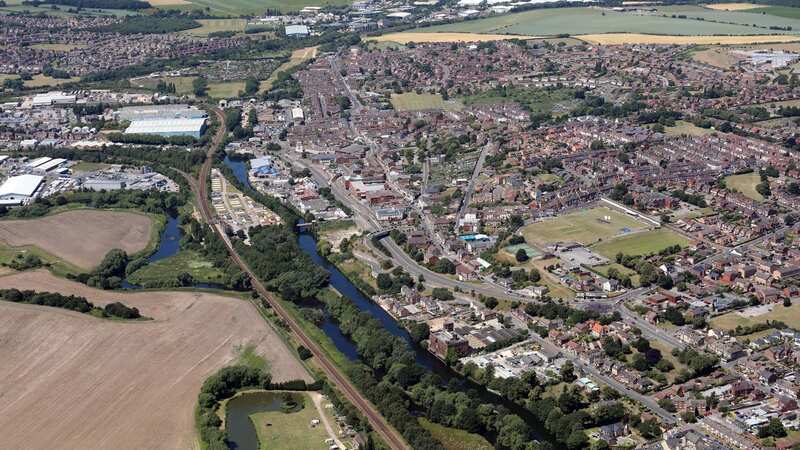40 years after the pits closed, Britain's mining towns still suffer

Devastated former mining communities are still falling behind the rest of Britain decades after the pit closures, a charity has warned.
Speaking forty years after the miners’ strike, The Coalfields Regeneration Trust, say these towns and villages have been let down by a lack of investment.
The comments came as a BBC poll in Britain’s former mining heartlands found 73% of people felt they had seen little of the Tory’s £15billion promise to level up “everyone, everywhere”. And they are still suffering a lack of jobs since losing an industry that employed more than 220,000 people.
Former miner, granddad-of-four Kevin Horne, 75, who lives in Mexborough, South Yorks, told The Mirror: “It’s never been levelled off. When I left school in Rawmarsh, there were seven pits within five or six miles. Now there’s only one growing industry and that’s narcotics, unfortunately, or call centres where they are answering telephones all day long.” He said after the mines were closed all the pit houses were sold off to live-away landlords and fell into disrepair.
 Britain's major coal mining areas
Britain's major coal mining areasDarren Wood, 49, who lives in the ex-mining village of Goldthorpe, near Barnsley, told the BBC he had been looking for work for five years. The single dad-of-two said: “You can apply for stuff, check your emails and you don’t get any replies. They don’t get back to you, not even a ‘No, sorry you’re not suitable or been successful’. It does grind you down.”
 Teachers, civil servants and train drivers walk out in biggest strike in decade
Teachers, civil servants and train drivers walk out in biggest strike in decade
 Darren Wood has been looking for work for five years
Darren Wood has been looking for work for five yearsThis week marks the 40th anniversary of the miners’ strike when workers came above ground to fight the plans to shut the pits down. And 57% of the 2,426 polled in England, Scotland and Wales said there is a lack of suitable jobs in their area.
CRT chief executive Gary Ellis said: “Action is needed now to create a brighter future for these communities. There have been many positive changes but we have seen some of the initial progress go into reverse, such as the economic gap between the former coalfields and the rest of the UK doubling between 2004 and 2020. The former coalfields still have a wealth of untapped opportunity and if it is realised, [they] can play their role in helping the whole country reach its full potential.”
 Linda McAvan from the Coalfields Regeneration Trust
Linda McAvan from the Coalfields Regeneration TrustLinda McAvan, chair of the CRT, said: “The strike was 40 years ago.. In that time some things have got better – land has been cleared up – but we see the gap widening between the coalfields and the other parts of the UK, the cities in particular.”
The BBC’s Survation poll involved adults aged 18 to 64 who live in former mining areas from Fife in Scotland to Dover in Kent. Only 16% of the survey’s respondents said there had been progress on levelling up their area, while 49% of respondents with children were worried about their child’s prospects of getting a job locally.
Sir Steve Houghton, leader of Barnsley Council, said: “Mining communities are still playing catch-up. [The Government] need to focus on the areas that need it most if you are going to level up. And it needs to be a long strategy, a 20-year investment.”
A Department for Levelling Up, Housing and Communities (DLUHC) spokesperson said: “We’re supporting everyone, everywhere in the UK - including those in former coalfield communities - to improve their everyday lives through our £15 billion levelling up programmes.
“This includes our £1.1 billion Long-Term Plan for Towns so local people are empowered to steer their town’s regeneration over the next ten years. Through this initiative, 55 towns, including former mining towns like Accrington, Burnley, Merthyr Tydfil, and Chesterfield, will develop Long-Term Plans for regeneration based on local priorities to support transformation projects.”
Read more similar news:
Comments:
comments powered by Disqus
































